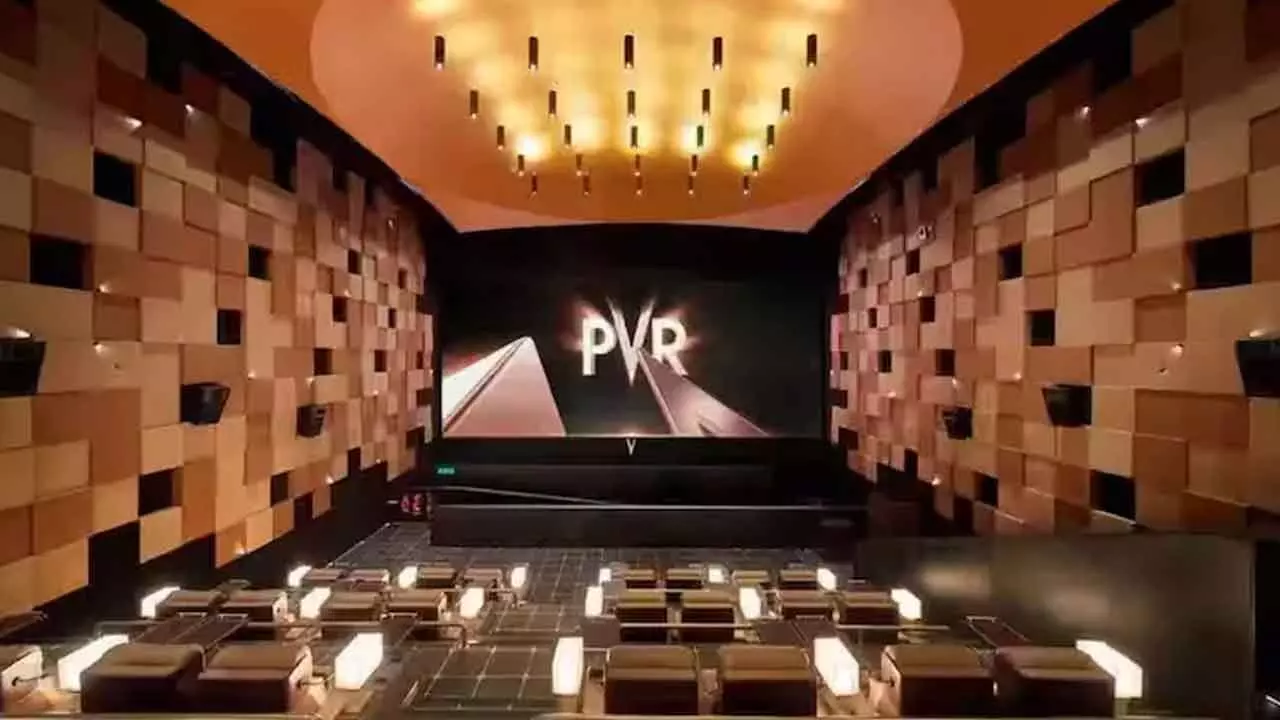Karnataka's $200 Movie Ticket Cap: A Box Office Blockbuster or a Bust for PVR Inox?
Karnataka's proposed $200 movie ticket cap could significantly impact PVR Inox revenues, spark legal challenges, and reshape the film exhibition industry. Discover the financial implications, the debate between affordability and business viability, and what this means for cinema lovers and investors.
Karnataka's $200 Movie Ticket Cap: A Box Office Blockbuster or a Bust for PVR Inox?

The spotlight's on Karnataka as the state government proposes a $200 cap on movie ticket prices, a move that could significantly shake up the film exhibition industry. This isn't just about saving a few bucks at the cinema; it's a potential financial tremor for giants like PVR Inox and a fascinating case study in balancing affordability with business viability.
The Karnataka Conundrum for PVR Inox
Karnataka isn't just another state for PVR Inox; it's a key player in their vast network. With 215 screens out of their 1,743 nationwide (as of May 2025), the state contributes a sizable 12.3% of their total screen portfolio. More importantly, it brings in about 8% of the Hindi box office revenue and roughly 10% of overall collections, with an average ticket price (ATP) of around $260.
Karan Taurani, Senior Vice President at Elara Capital, estimates that a $200 cap would translate to a 30% reduction in the state's ATP. This ripple effect could lead to a 3.7% decline in PVR Inox's consolidated ATP, potentially shaving off about 2.2% from their headline revenues and 1.8% from their EBITDA (Earnings Before Interest, Taxes, Depreciation, and Amortisation) between FY26-28.
The Premium Predicament
Imagine paying $600-$1,000 for an IMAX or 4DX experience in Bengaluru. These premium formats, a significant investment for exhibitors, thrive on higher price points. A uniform cap could drastically extend their payback period, making these capital-intensive ventures less appealing.
Taurani warns that such a cap could even impair the franchise-led expansion of PVR Inox. Franchise partners, eyeing their return on investment (ROI), might think twice. Furthermore, with distributor revenue tied to net ticket collections, a 30% price cut directly impacts exhibitor earnings, especially in high-rental premium malls. This could push the occupancy breakeven threshold above the current 18-20% per show, forcing exhibitors to lean more heavily on food and beverage (F&B) upselling to keep the lights on.
Past Pangs and Present Protests
This isn't the first time exhibitors have faced "pricing pangs" in Karnataka. Amit Sharma, former Managing Director of Miraj Cinemas, previously voiced concerns that a cap would have a long-term negative impact on exhibitors. He even highlighted the plight of single-screen theaters, fearing a shift in audience to multiplexes if differential pricing isn't allowed.
The idea of capping movie tickets at $200 first surfaced in the Karnataka Budget in March. On July 15, the state released a draft amendment to the Karnataka Cinemas (Regulation) Rules, 2014, officially proposing this uniform cap for all films across all theaters.
Affordability vs. Viability: A Tightrope Walk
The draft notification is currently open for public feedback for 15 days. After this, the government will review submissions before issuing a final gazette notification.
Taurani anticipates that exhibitors will likely consider legal recourse. He points to past precedents where the industry successfully challenged similar measures, arguing that investments in premium formats and differentiated consumer experiences justify higher ticket pricing.
While the government aims to boost affordability and promote local language films, historical data suggests that content quality, not just ticket pricing, is the real driver of footfalls.
Girish Johar, a producer and film trade expert, acknowledges the government's good intentions. He notes that Bengaluru is a highly film-friendly city, where a diverse range of films find an audience. He believes that higher ticket prices have transformed cinema-going from a habitual activity to an "event," impacting overall footfalls. Affordable tickets, he argues, could benefit medium and small-budget films. However, he too recognizes the economic strain this places on exhibitors, given high rentals and the constant need for upgrades.
Similar ticket caps exist in other states. Tamil Nadu, for example, caps prices at $150 (excluding taxes), while Telangana allows up to $295 for regular seats and $350 for recliners. Andhra Pradesh has caps of $177 and $295 for regular and recliner seats, respectively.
A Look Back: Karnataka's Previous Cap
This isn't Karnataka's first rodeo with a ticket cap. In April 2017, the state implemented a $200 cap. However, the film exhibition industry successfully challenged this in court, securing a favorable verdict from the High Court in 2021 that allowed for exceptional pricing for special and luxury formats. The state subsequently withdrew the order, leaving pricing to exhibitor discretion.
The question remains: Will history repeat itself, or will Karnataka's latest attempt at capping movie ticket prices fundamentally alter the economics of the silver screen?

